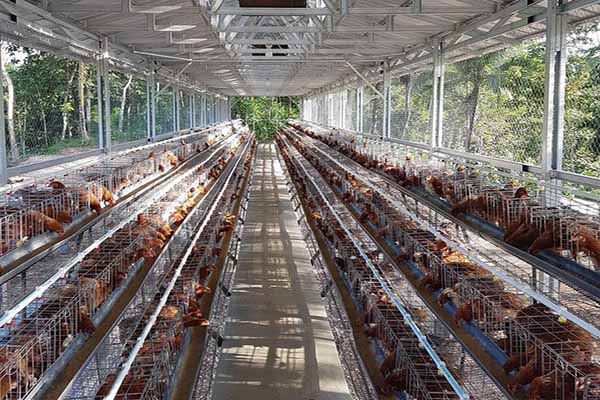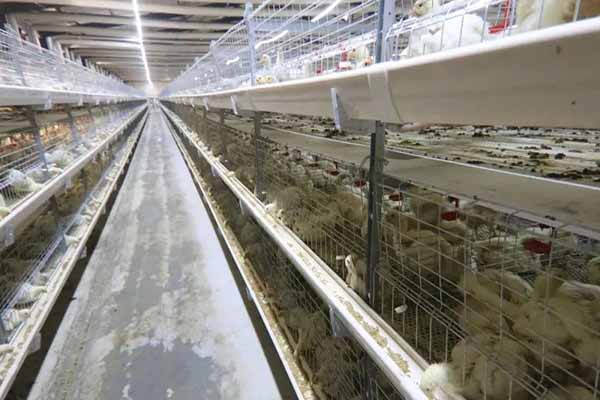Kuchi Chicken Farming in Kenya: A Comprehensive Guide
Time : 2025-05-14
Are you thinking about starting a chicken farming business in Kenya? Well, you’ve come to the right place! Kuchi chicken farming, in particular, has been gaining popularity due to its versatility and profitability. But before you dive in, it’s essential to understand the basics and strategies involved in this venture. In this article, we’ll cover everything you need to know about kuchi chicken farming in Kenya. Let’s get started!
What is Kuchi Chicken Farming?
Kuchi chicken farming, also known as free-range chicken farming, involves raising chickens in a natural environment where they can roam freely, peck at insects, and forage for food. Unlike traditional battery farming, kuchi chickens have access to more space, which leads to healthier and tastier eggs and meat.
The Benefits of Kuchi Chicken Farming
- Higher Quality Products: Kuchi chickens produce eggs and meat with better flavor, texture, and nutritional value.
- Healthier Chickens: Free-range chickens have a lower risk of diseases compared to chickens raised in confined spaces.
- Environmental Friendly: Kuchi chicken farming is more sustainable and eco-friendly than traditional methods.
- Market Demand: Consumers are increasingly seeking out healthier, locally-sourced products, making kuchi chicken farming a lucrative business opportunity.
Starting Your Kuchi Chicken Farm in Kenya
1. Location and Site Selection
Selecting the right location is crucial for a successful kuchi chicken farm. Look for a place with fertile soil, clean water sources, and access to a market. Kenya’s climate varies, so ensure your site can accommodate the chickens throughout the year.
2. Land Acquisition and Permits
Before purchasing land, obtain the necessary permits from the local government. This includes a license to raise chickens, land use permits, and environmental clearance certificates.
3. Chicken Breeds
Select the right chicken breeds for your farm. Kuchi chickens are known for their disease resistance and ability to adapt to various climates. Popular breeds include the African Black, Kuroiler, and Serengeti.

4. Infrastructure and Equipment
Construct a secure fence around the farm to protect the chickens from predators. Provide a shelter with nesting boxes and roosting bars for the chickens to rest and lay eggs. Purchase feeders, waterers, and other necessary equipment.
5. Feeding and Nutrition
Provide a balanced diet for your chickens. This includes a mixture of grains, vitamins, and minerals. Ensure they have access to fresh water at all times.

6. Health Management
Regularly check the chickens for signs of disease or stress. Vaccinate them against common diseases, and consult a veterinarian for any health issues.
Marketing Your Kuchi Chicken Products
Marketing your kuchi chicken products is crucial to the success of your business. Here are a few tips to help you get started:
- Build a Strong Brand: Create a unique brand identity for your farm, emphasizing the health benefits and sustainability of kuchi chicken products.
- Utilize Social Media: Share photos and stories of your farm on social media platforms to engage with potential customers.
- Attend Local Markets and Events: Participate in local markets and events to showcase your products and connect with potential buyers.
- Direct Sales: Consider direct sales to local restaurants, cafes, and retailers to ensure a steady revenue stream.
Conclusion
Kuchi chicken farming in Kenya offers a promising business opportunity for entrepreneurs looking to tap into the growing demand fo r healthier, locally-sourced products. By following the steps outlined in this guide, you can start your kuchi chicken farm with confidence. Remember, success in this venture depends on careful planning, dedication, and a passion for sustainable agriculture.
r healthier, locally-sourced products. By following the steps outlined in this guide, you can start your kuchi chicken farm with confidence. Remember, success in this venture depends on careful planning, dedication, and a passion for sustainable agriculture.











